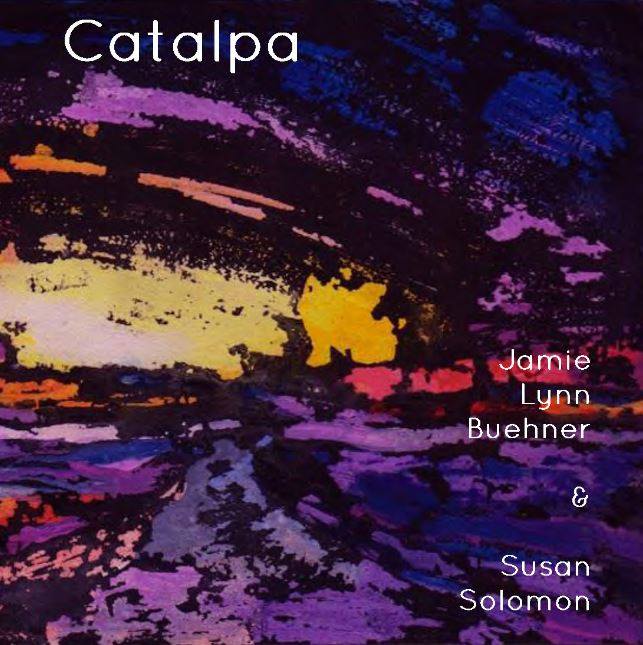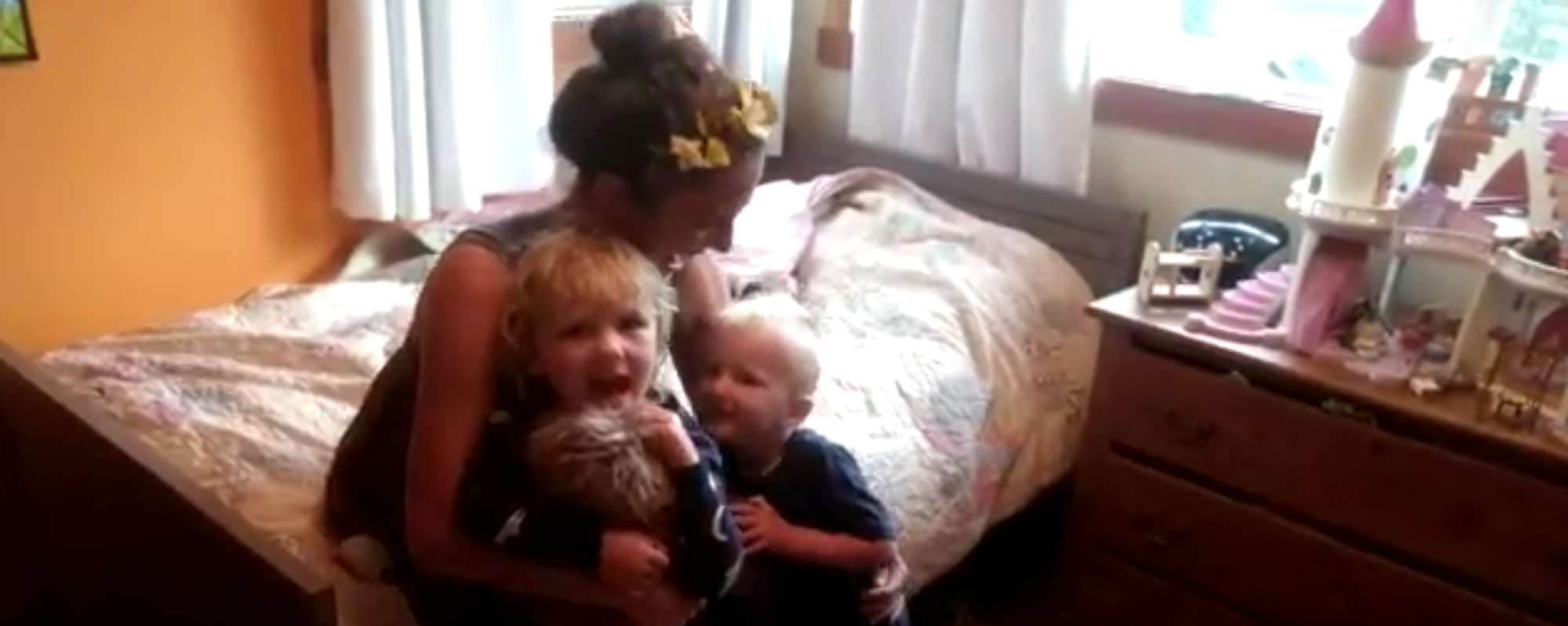Category: Hamline University MFA in Creative Writing Program
Please purchase my poetry chapbook!
Hello friends,
My second chapbook, a collaboration of poems by me and paintings by my dear friend and graduate school colleague Susan Solomon, has been made available here through Red Bird Press.
It is entitled Catalpa after the tree and the title poem. For the rest, you’ll just have to see for yourself!
It would mean a lot to us if you would support our project by buying our book and/or sharing this link.
Also, please let me and/or Susan know what you think!
Lots of love,
Jamie

Review: ‘Underground: New and Selected Poems,’ by Jim Moore
Review: ‘Underground: New and Selected Poems,’ by Jim Moore

Fuchsia by Katrina Vandenberg
Fuchsia
That summer in the west I walked sunrise
to dusk, narrow twisted highways without shoulders,
low stone walls on both sides. Hedgerows
of fuchsia hemmed me in, the tropical plant
now wild, centuries after nobles imported it
for their gardens. And I was unafraid,
did not cross to the outsides of curves, did not
look behind me for what might be coming.
For weeks in counties Kerry and Cork, I walked
through the red blooms the Irish call
the Tears of God, blazing from the brush
like lanterns. Who would have thought
a warm current touching the shore
of that stone-cold country could make
lemon trees, bananas, and palms not just take,
but thrive? Wild as the jungles they came from,
where boas flexed around their trunks —
like my other close brushes with miracles,
the men who love you back, how they come
to you, gorgeous and invasive, improbable,
hemming you in. And you walk that road
blazing, some days not even afraid to die.
My teacher wins :)
 |
| With Jim Moore at his Invisible Strings reading the day of my MFA thesis defense, April 15, 2011. |
Reading/birthday roses
Hope is the thing with feathers that perches in the soul. – Emily Dickinson
 |
|||||
| They were fast! |
But, alas, another cobbled-together job has come to an end and now I find in front of me the only road left, the Real Job, the job that I can find and then relax, the job that I can be at Peace with. I have a new Degree and no debt, and also no money which leaves me feeling like I am sitting on one of those little cloths I was selling, my butt hanging over the sides. It is very well-constructed, but how does it get off the ground?
A moment can move on and still stay with us, it’s one of the most beautiful things in life, Robert Hass’ Mississippi John Hurt lines in the poem about his brother, Ryan Gosling honoring the spirit of Patrick Swayze in his recent film, and in a thirty-three year-old, not-even-really girl anymore, back to the drawing board again, or perhaps there, officially, for the first time, thinking back on what she has to give to the next phase of life.
In Istanbul post-undergrad/pre-graduate school I taught English, wrote in my journal, and watched the O.C.
…and the little book I came across last night that reminded me of those days. Maybe it’s a non-sequitor, but I just don’t want to forget her.
 |
||
| Link |
Time to start looking for what’s out there. No pressure in a bad way. I’m looking everywhere…
Sylvia Plath, Modern-ish Postmodernist essay
Highlights… like the magazine
Birthday highlights: Crivitz/sledding/beer with dad and Ted and riding shotgun reading my poems,
the road trip with mom, the hot tub before the reading, Nick coming (and being on time :)),
the reading. Jevin going first and making me not nervous at all. The roses from Gretchen and Matt. Drinking Fat Squirrel with mom in the hotel room. Those comfortable beds.
The defense–how can I say it?–now I just want to be myself.
Harlow smiling. Jim telling me that he had been in a bad mood. Dancing with Sierra to “Piece of my Heart,” and her sitting at the bar eating pizza.
 |
| Sierra and Javi |
"Like" by Jevin Boardman was selected as this week’s What Light winner by Duluth Poet Laureate Jim Johnson.
Like
Meaning a preference for something.
She enjoys the beach, likes it. Meaning he’ll want
or choose, do as he likes. Meaning similarity,
a winter morning like that first in Minong, Wisconsin.
Meaning one thing typical of another, lying in bed
between the windows, the frames caked in frost
like eyelids crusty from sleep. Meaning as though
it would or should be. She said the clouds
look like rain. Meaning such as. A room lacking
in subjects, like physics. Meaning counterparts,
a group similar, and the like. Meaning resemblance.
Lovelike. More precise for what there was?
A man lying in bed beside a woman, about whom
he wrote poems of love and never did.
Jevin Boardman is currently a Master of Fine Arts candidate in Hamline’s Graduate School of Liberal Studies program. He is unpublished (until now) and resides in Saint Paul, Minnesota.
Books I’ve Read since A Million Little Pieces (12/29/05)
Charlotte Bronte: Jane Eyre
Kim Barnes: In the Wilderness: Coming of Age in Unknown Country
Elizabeth Gaskell: Mary Barton
Charles Dickens: David Copperfield
Fan Shen: Gang of One: Memoirs of a Red Guard
Frank McCourt: Teacher Man
Wilkie Collins: The Woman in White
Bram Stoker: Dracula
Kent Nerburn: Neither Wolf Nor Dog: On Forgotten Roads with an Indian Elder
William Stafford: Down in my Heart: Peace Witness in War Time
Paul Mariani: Lost Puritan: A Life of Robert Lowell
David Kalstone: Becoming a Poet: Elizabeth Bishop, Marianne Moore, Robert Lowell
Audrey Niffenegger: The Time Traveler’s Wife
Sylvia Plath: The Bell Jar
Emily Bronte: Wuthering Heights
Nancy Milford: Savage Beauty: The Life of Edna St. Vincent Millay
William Faulkner: The Sound and the Fury
Jonathan Safran Foer: Extremely Loud & Incredibly Close
Stephen Greenblatt: Will in the World: How Shakespeare became Shakespeare
Nicole Krauss: The History of Love
Michael Cunningham: The Hours
Elizabeth M. Gilbert: Eat, Pray, Love: One Woman’s Search for Everything…
James Joyce: A Portrait of the Artist as a Young Man
—–: Dubliners
—–: Ulysses
Richard Ellmann: Ulysses on the Liffey
Harry Blamires: The New Bloomsday Book
Esmeralda Santiago: The Turkish Lover
Charles Johnson: The Sorcerer’s Apprentice
Marie Luise Kaschnitz: Circe’s Mountain
Patricia Francisco: Telling: A Memoir of Rape and Recovery
Jamaica Kincaid: The Autobiography of my Mother
Ann Pancake: Strange as this Weather Has Been
Decision time
This summer is wonderful. I have my own place, a bike, a job, rainbow sherbert, and uninterrupted hours to figure out what to do with the next phase of life, which, since I am unattached (no pets, even), gets to be whatever I want it to be.
I was accepted into Hamline’s Fine Arts in writing program. The closer it gets to fall term, the more intensely I think about my own writing. When/where do I write the most/best? I haven’t been writing long enough or seriously enough yet to find that out.
Is school the best way to take a serious look at what one can accomplish? I tend to lean towards yes, but then I think of writers without advanced degrees whose work I love. But then I think of how many more of them I will find out about and/or meet…
How wonderful and frightening, and exhausting, to be thirty, with so much life that could still go anywhere.




